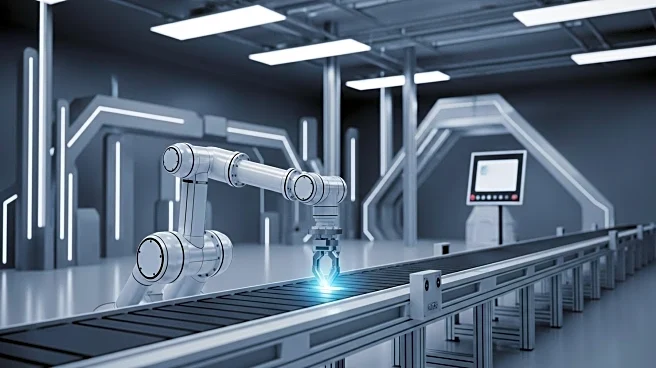What's Happening?
Automakers are increasingly urging their suppliers to integrate artificial intelligence (AI) technologies into their manufacturing processes to enhance efficiency. Companies like Martinrea are adopting new AI tools, such as advanced vision systems that use cameras and AI software to quickly identify welding defects. This push for AI adoption is part of a broader trend among automakers to streamline operations and reduce costs in the face of competitive pressures and evolving market demands.
Why It's Important?
The integration of AI in manufacturing processes represents a significant shift towards more automated and efficient production lines. For automakers, this could mean reduced production costs, improved product quality, and faster turnaround times. Suppliers that embrace AI technologies may gain a competitive advantage by offering more reliable and cost-effective solutions. This trend could also lead to job transformations within the industry, as workers may need to adapt to new roles that involve managing and maintaining AI-driven systems.
What's Next?
As more suppliers adopt AI technologies, the automotive industry may see a transformation in its supply chain dynamics. Automakers will likely continue to invest in AI research and development to further enhance their manufacturing capabilities. There may also be increased collaboration between automakers and tech companies to develop customized AI solutions. Policymakers and industry leaders will need to address potential challenges, such as workforce retraining and data security, to ensure a smooth transition to AI-driven manufacturing.









